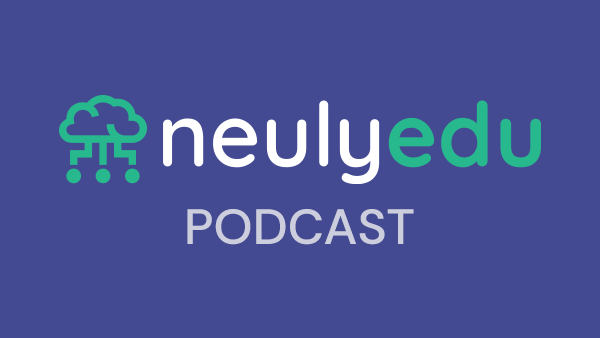Psychedelics Today Podcast

749 episodes
A show discussing the important academic and other research in the field of psychedelics, and how it relates to human potential and healing.
PTSF60 – Representation and Access, with Elan Hagens and Rebecca Martinez of Fruiting Bodies Collective
May, 21, 2021
In today’s Solidarity Fridays episode, Michelle and Kyle interview Elan Hagens and Rebecca Martinez, Health Equity subcommittee members for Oregon’s Measure 109 and co-founders of podcast/media site, Fruiting Bodies Collective. www.psychedelicstoday.com
PT244 – Mark Haberstroh – Mushrooms, Retreat Centers, and Safety
May, 18, 2021
In this episode, Joe and Kyle interview mushroom enthusiast Mark Haberstroh, who talks about realizing his spiritual path and what he's learned from working at more psychedelic retreat centers than anyone Joe knows. www.psychedelicstoday.com
PTSF59 – Psychedelics and Bipolar, with Benjamin Mudge
May, 14, 2021
In today’s Solidarity Fridays episode, Michelle, Kyle, and Joe are joined by Benjamin Mudge. Mudge is bipolar and has used ayahuasca to keep himself off pharmaceutical drugs, and he thinks others can safely follow his lead. www.psychedelicstoday.com
PT243 – Dr. Fernando Espi Forcen and Dr. Franklin King of MGH’s Center for the Neuroscience of Psychedelics
May, 11, 2021
In this episode, Joe interviews Doctors Fernando Espi Forcen and Franklin King of MGH’s Center for the Neuroscience of Psychedelics about the center’s roots, their goals, and their thoughts on the future of psychiatry. www.psychedelicstoday.com
PTSF58 - Liberty, The Power of Therapy, and Mushrooms in Maine
May, 07, 2021
In today’s Solidarity Fridays episode, Michelle, Kyle, and Joe discuss Maine’s proposal for legal psilocybin therapy, MAPS’ Phase 3 MDMA trial, therapy, money, and a recent "100 Most Influential People in Psychedelics" list. www.psychedelicstoday.com
PT242 - Gary Laderman - Religion: Sex, Death, and Drugs
May, 04, 2021
In this episode, Joe interviews author of "Don’t Think About Death: A Memoir on Mortality,” Gary Laderman, about expanding the scope of what we view as “religious,” and how religion affects our views on sex, death, and drugs. www.psychedelicstoday.com
PTSF57 - New Compounds, Psychedelic Business, and Neurogenesis
Apr, 30, 2021
In today’s Solidarity Fridays episode, Kyle and Joe talk about new compounds, new legalization bills in Texas and Louisiana, Leonard Pickard, Alzheimer’s disease, the tragedy of the commons, and the importance of fringe cases. www.psychedelicstoday.com
PTSF57 - New Compounds, Psychedelic Business, and Neurogenesis
Apr, 30, 2021
In today’s Solidarity Fridays episode, Kyle and Joe talk about new compounds, new legalization bills in Texas and Louisiana, Leonard Pickard, Alzheimer’s disease, the tragedy of the commons, and the importance of fringe cases. www.psychedelicstoday.com
PT241 - Tyler Chandler and Nick Meyers of “Dosed”: Iboga and The Opioid Crisis
Apr, 27, 2021
In this episode, Joe is joined by Tyler Chandler and Nick Meyers a year after they released their very powerful documentary, "Dosed.” They talk about its creation and response, iboga, the drug war, and the opioid crisis. www.psychedelicstoday.com
PTSF56- Data vs. Spin, with Tim Cools of Psychedelic Experience
Apr, 23, 2021
In today’s Solidarity Fridays episode, Joe, Kyle, and Michelle are joined by Tim Cools of Psychedelicexperience.net. They talk about 5-MeO-DMT and how even medical journals can put a spin on their published studies. www.psychedelicstoday.com
PT240 - Ralph Blumenthal - Alien Abductions and The Believer
Apr, 20, 2021
In this episode, Michelle and Joe interview Ralph Blumenthal, author of "The Believer: Alien Encounters, Hard Science, and the Passion of John Mack,” about Mack's work and its relation to psychedelics (beyond being trippy). www.psychedelicstoday.com
PTSF55 - Creativity, Group Ceremony, and Astral Projection
Apr, 16, 2021
In today’s Solidarity Fridays episode, Joe, Kyle, and Michelle discuss recent legalization wins, psilocybin and creativity, ceremonial ayahuasca use and group benefit, and the CIA, astral projection, and the missing page 25. www.psychedelicstoday.com
PT239 - Richie Ogulnick - Ibogaine, Unicity, and Beneficence
Apr, 13, 2021
In this episode, Joe interviews Richie Ogulnick, a facilitator/guide who has been helping clients through ibogaine experiences for 27 years. They talk about his practice, different methodologies, intentions, and why iboga works. www.psychedelicstoday.com
PTSF54 - Theft, Patents, and Ethical Psychedelic Companies
Apr, 09, 2021
In today’s Solidarity Fridays episode, Joe, Kyle, and Michelle discuss California’s statewide decriminalization effort, patents, provider information theft, and how psychedelic companies can be ethical in a capitalistic world. www.psychedelicstoday.com
PT238 - Kile Ortigo - Integration and Existential Exploration
Apr, 06, 2021
In this episode, Joe and Kyle interview clinical psychologist and author, Kile Ortigo, about trauma, healthcare burnout, Jung, mythology in movies, and ways different therapeutic modalities can better handle integration. www.psychedelicstoday.com
PTSF53 - Psychedelics and Creativity, with Laura Dawn
Apr, 02, 2021
In today’s Solidarity Fridays episode, Joe interviews microdose mentor, entrepreneur, author, and retreat leader, Laura Dawn. They talk about creativity and how psychedelics can foster creative thinking and problem-solving. www.psychedelicstoday.com
PT237 - Dena Justice - Finding the Frequency of Safety
Mar, 30, 2021
In this episode, Joe interviews 4-time guest Dena Justice, who is using this episode to come out of the psychedelic closet in a big way, discussing the lessons learned about safety from years of powerful psychedelic experiences. www.psychedelicstoday.com
PTSF52 - Start Low, Go Slow
Mar, 26, 2021
In today’s Solidarity Fridays episode, Kyle, Joe, and Michelle discuss Carl Hart, the drug war and truth, another study showcasing the placebo effect, mushrooms, and if scientists will be able to predict psychedelic outcomes. www.psychedelicstoday.com
PT236 - Dr. Carl Hart - Drugs: Honesty, Responsibility, and Logic
Mar, 23, 2021
In this episode, Joe and Kyle interview author of Drug Use for Grownups, Dr. Carl Hart. They talk about the drug war, coming out of the closet, drug exceptionalism, responsible drug use, and fighting inaccuracies with logic. www.psychedelicstoday.com
PTSF51 - Miracle Cures, Money, and Standing on the Shoulders of Giants
Mar, 19, 2021
In today’s Solidarity Fridays episode, Kyle, Joe, and Michelle discuss the problems with psychedelics being touted as “miracle cures,” and Tim Ferriss and David Bronner's concerns over Compass Pathways' recent patent-filing. www.psychedelicstoday.com